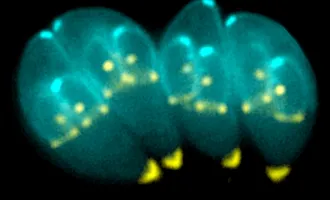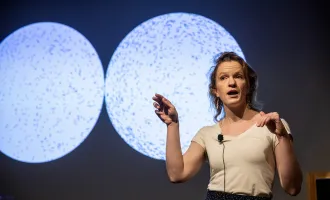Journal Club: Tumor Immunology/Senescence
Presentation: "Putting cancer to rest: TH1 cytokines induce tumor cell senescence"
Presenter: Adriana Mujal (2nd year BMS student)
Paper: Braumüller H, et al. “T-helper-1-cell cytokines drive cancer into senescence.” Nature. 2013 Feb 3.
In a nutshell:
Our immune systems maintain a delicate balance, protecting our own cells (“self”) while attacking foreign invaders (“non-self”). What do they do with cancer cells, an “altered self”?
Traditionally, we think of CD8 “killer” T-cells as anti-tumor, and we therapeutically try to increase their killing activity. Too much killing activity, however, can lead to autoimmunity. Regulatory T-cells (Tregs) keep killer T-cells in check and can be pro-tumor by suppressing too much killing. Cancer immunotherapy can involve suppressing their activity.
The authors of this paper approach this from a new angle, by looking at the effect of helper T-cells, specifically the Th1 subset. These cells enhance immune responses. The authors find that Th1 cells don’t kill cancer cells, but can induce tumor senescence both in vitro and in vivo, a permanent resting state in which cells can no longer divide. They do this through production of the cytokines IFN-gamma and TNF, which act via the p16 and Rb pathway.
Can this be used therapeutically? Can we increase Th1 cells to induce tumor senescence? Is it enough to put tumors to sleep instead of killing them? TBD.



